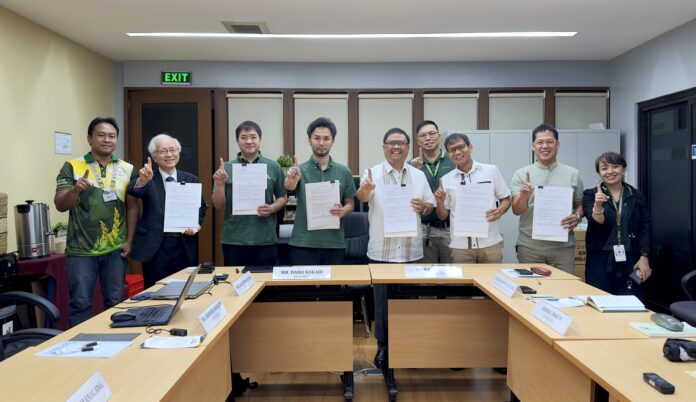The Philippine Rice Research Institute (PhilRice) has embarked on a partnership with Japan-based Newgreen Inc. to field-test the solar-powered robot, Aigamorobo, designed to combat weed growth in rice fields.
Under a memorandum of agreement announced on Tuesday, Newgreen will provide two Aigamorobo units for testing at PhilRice’s Central Experiment Station in Science City of Muñoz, Nueva Ecija. The testing phase will span from the upcoming wet season through next year’s dry season.
This collaboration comes as a response to the growing issue of weed control in rice farming. PhilRice said that uncontrolled weed growth can slash rice yields by up to 96 percent, as weeds compete with rice for essential resources such as water, sunlight, and nutrients. Current weed management practices rely heavily on herbicides, which increase production costs and pose health and environmental risks.
Edwin Martin, project lead at PhilRice, emphasized the potential of solar-powered robots like Aigamorobo to reduce herbicide use. This shift could not only cut down on production costs but also mitigate the exposure of farmers to harmful chemicals and prevent pollution of surrounding ecosystems.
The Aigamorobo robot operates autonomously between 6 a.m. and 4 p.m., working most effectively within the first 20 days after planting, when weeds are at their peak. The robot is designed to function in fields with at least 5 cm of water and supports dry direct seeding, reducing the need for transplanting and lowering labor costs.
“If the robot proves successful in controlling weeds and boosting rice growth and yields in our local conditions, it could significantly enhance harvests and reduce production costs,” Martin explained.
Field testing began on 26 March, with a technology demonstration held the following day, attended by approximately 700 local farmers. The results of this collaboration could pave the way for a more sustainable and cost-effective approach to rice farming in the Philippines.







